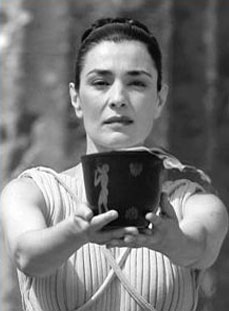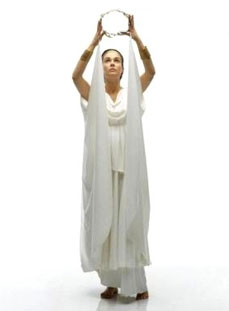
PRIZES
The Panathenaic games were different from the Olympics not only because of their tribal or team events, but also because of the cash values of the prizes. Musicians received gold and silver crowns, the athletes and equestrians olive oil in the special prize amphorae. There were 1st and 2nd prizes, the latter usually being one-fifth of the former. The most valuable prize went to the winner of the chariot race for adult horses: 140 amphoras of oil, or approximately 5,600 liters. It has been estimated that approximately 1,400 vases were commissioned from Athenian potters every four years, although a mere 1 percent of these survive. This type of vase became so popular that unofficial and somewhat smaller copies were manufactured. Winning tribes were usually rewarded with an ox for a communal feast.
In addition to their "cash" prizes, athletes received other honors. Their nude bodies were adorned with ribbons and their hands filled with leafy branches. They were often honored in their hometowns with statues and with the privilege of dining for life at state expense. In some instances the honors were tongue-in-cheek. A case in point is a graffito on a coarse ware water jar from the Athenian Agora that pokes fun at a man named Titas, calling him an Olympic victor in lechery!

MONUMENTS
The Acropolis and Agora, like other Greek sanctuaries and cities, were once filled with monuments honoring Panathenaic and Panhellenic victors. Most of them exist only partially today, in the form of inscribed bases without the statues that rested upon them. Most useful to the historian trying to reconstruct the Panathenaic games are the inscribed stelai(=stone columns) listing the various contests, their prizes, and the victorious athletes. One of the most important of these is an early-4th-century B.C. inscription found on the Acropolis that lists the prizes awarded for the various events of the Panathenaea.
